In recent years, in response to the need to improve agricultural production efficiency, increase productivity, quality and income for farmers, the government and people of Ia Phi commune, Gia Lai province have actively implemented solutions to transform the structure of crops and livestock, promoting the role of cooperatives and enterprises associated with farmers.
Since then, many effective production models have been formed and spread, helping to improve the lives, especially of local ethnic minorities.
Building a key agricultural sector that adapts to the market
With a total annual cultivated area of over 7,397 hectares, agriculture is identified as the key economic sector of Ia Phi commune. In the area, people mainly focus on producing key crops such as: coffee (2,844.3 hectares), rubber (2,000 hectares), rice (1,060 hectares) and fruit trees (713.2 hectares), of which durian currently accounts for 405 hectares and is being systematically invested in the direction of goods.
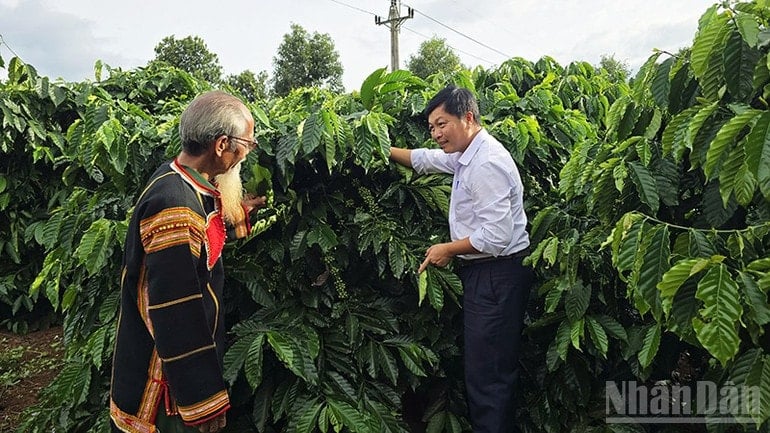
Notably, along with fluctuations in market prices, people in Ia Phi commune have proactively and flexibly changed their crop structure. Many households have boldly cut down trees with low economic value such as Litsea and cassava to switch to growing coffee, rubber or intercropping fruit trees such as durian, avocado, and Thai jackfruit, contributing to improving the ecosystem and income. In addition, every year, people also replant coffee trees with new high-yield varieties such as TR4, TR9, TRS1, Thien Truong, and Xanh Dwarf... Thanks to that, the productivity and quality of Ia Phi coffee are constantly improved.
According to Chairman of the People's Committee of Ia Phi Commune Nguyen Cong Son, in the 2026-2030 period, the commune will gradually convert about 89 hectares of ineffective cassava land to industrial crops and fruit trees. At the same time, local authorities will continue to advise on plans to convert crop varieties to suit market demand and land and climate conditions in each village. Along with that is the orientation to develop organic agriculture and circular agriculture in a sustainable direction.
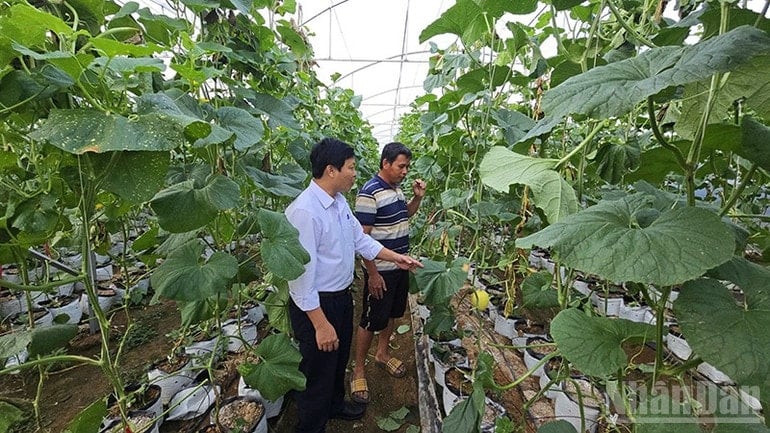
Along with cultivation, livestock farming is also identified as an important industry in the development of household economy in the commune. By the end of 2025, the total livestock herd in Ia Phi reached a fairly stable level with 388 buffaloes, 7,095 cows, 6,616 pigs, 878 goats, 27,679 poultry. In addition, the area also has 3,000 beehives and 6 commercial bird nest houses.
To improve livestock farming efficiency, the commune focuses on implementing disease prevention and control measures, especially controlling the risk of African swine fever outbreaks. Specifically, in 2025, an outbreak occurred at Mr. Ro Cham Vet's household in Kenh Chop village. Immediately after detection, the locality promptly destroyed all pigs (22 pigs, total weight 1,053 kg) and paid full support according to regulations. Currently, vaccination, registration of livestock quantity, and management of livestock herds are being implemented strictly and in accordance with procedures, contributing to stabilizing supply and ensuring disease safety.
Promote joint production
One of the notable highlights in Ia Phi is the development of collective economic models and cooperatives. A typical example is the Ia Phi Agricultural Cooperative with a project linking production and consumption of coffee for 100 households, on an area of 130 hectares. This model not only helps improve the quality of coffee, but also increases income by 3-5% for households, especially for ethnic minority households.
Sharing about the significance of this linkage model, Mr. Ro Cham Ju, Mrong Ngo 3 village said: “People are very excited because they are guided with new techniques, and the cooperative guarantees their products, so they feel secure in production. Previously, when selling coffee, traders forced down the price, but now there are buyers who pay higher prices, and they know how to take care of it, so productivity has increased significantly.”
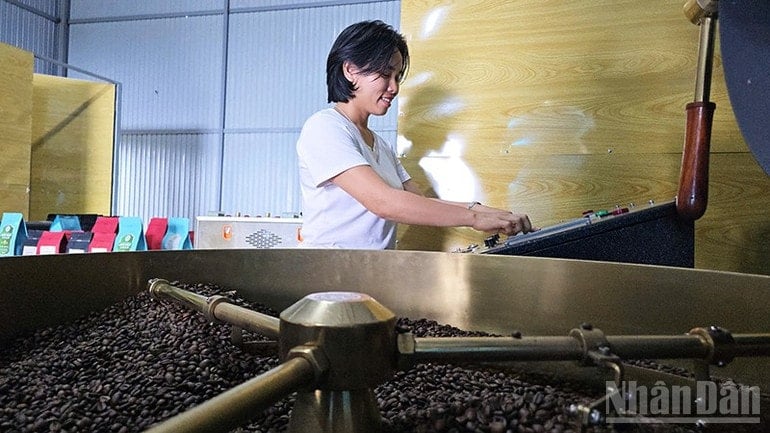
In addition, many new production models are proving effective. Nui Co Agricultural Service Cooperative with the model of red lingzhi mushroom grown in greenhouses using microbiological techniques; Hoang Gia Agricultural Cooperative developing high-tech melons in greenhouses has become a learning model for many farmers. In particular, Jrai Ialy Agricultural Processing Company Limited is investing in a high-quality coffee production-processing-consumption chain associated with local brands, contributing to raising the level of Ia Phi agricultural products in the domestic market and towards export.
Another typical farming model is Mr. Luong Van Suc's household, growing durian intercropped with coffee in an organic way. Mr. Suc shared: "Intercropping helps the soil to be loose, retain moisture, and no longer need to use a lot of chemical fertilizers, so the fruit is clean and the coffee is also more delicious."
In order to ensure the quality of agricultural materials and seed sources, Ia Phi commune has coordinated with the Department of Crop Production and Plant Protection of Gia Lai province to sign a commitment with 15 fertilizer and pesticide trading establishments, ensuring compliance with legal regulations. At the same time, it has inspected and reviewed 6 establishments producing and trading plant varieties; guided households in selecting and testing varieties suitable for the locality.
Through the synchronous management of seed sources and the fight against commercial fraud in agricultural materials, people have avoided the situation of "losing money and suffering" due to the use of poor quality seeds, limiting the impact on the environment and people's health.
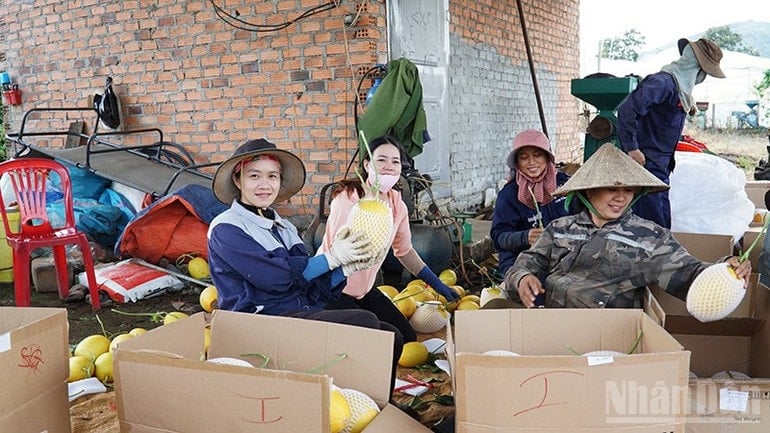
Ia Phi Commune aims to promote production organization according to the cooperative model, linking businesses and farmers, especially in areas specializing in coffee, fruit trees, and high-tech vegetables. At the same time, the commune will also guide people to build organic and circular agricultural models to adapt to climate change and meet the increasing market demand for product quality.
Along with that is the criteria for building advanced new rural areas. The indicators of effective production, income, rural environment, security and food safety are being gradually improved by the commune through each crop season. Local authorities and farmer, women and youth organizations will also join in encouraging start-ups and innovation in agriculture.
From correct policies, close leadership to the consensus of the people, Ia Phi commune is gradually affirming its position as one of the leading areas in restructuring the agricultural sector of Gia Lai province.
Source: https://baolamdong.vn/phat-trien-nong-nghiep-hieu-qua-va-ben-vung-tai-ia-phi-402293.html




![[Photo] Highways passing through Dong Nai](https://vphoto.vietnam.vn/thumb/1200x675/vietnam/resource/IMAGE/2025/11/12/1762940149627_ndo_br_1-resize-5756-jpg.webp)

![[Photo] Prime Minister Pham Minh Chinh attends a conference to review one year of deploying forces to participate in protecting security and order at the grassroots level.](https://vphoto.vietnam.vn/thumb/1200x675/vietnam/resource/IMAGE/2025/11/12/1762957553775_dsc-2379-jpg.webp)

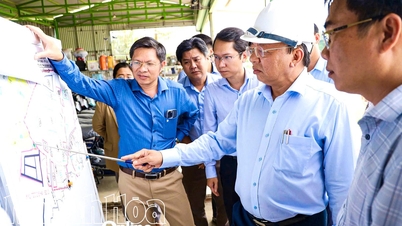





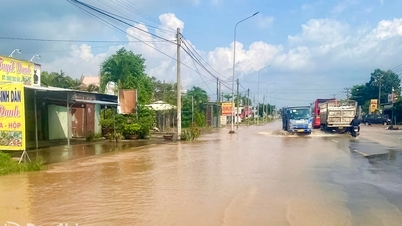


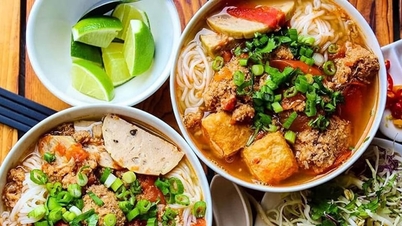




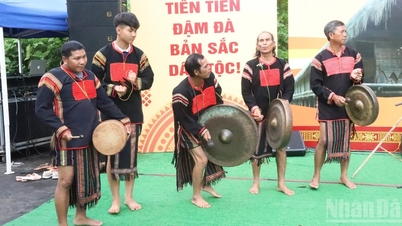
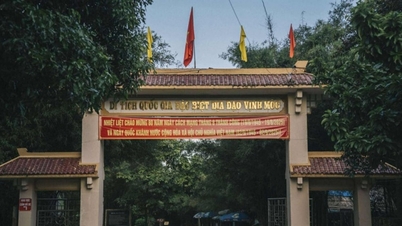



















































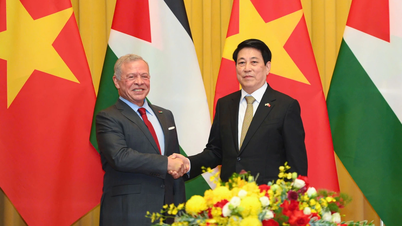

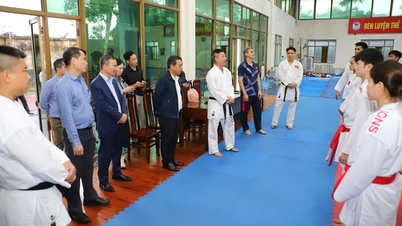






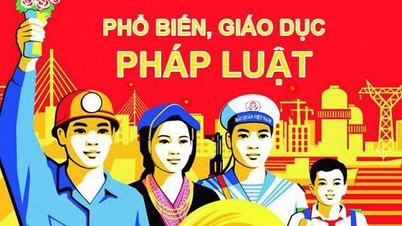

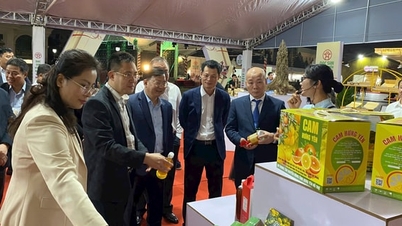


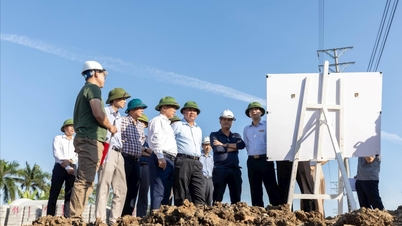






![Dong Nai OCOP transition: [Article 3] Linking tourism with OCOP product consumption](https://vphoto.vietnam.vn/thumb/402x226/vietnam/resource/IMAGE/2025/11/10/1762739199309_1324-2740-7_n-162543_981.jpeg)







Comment (0)